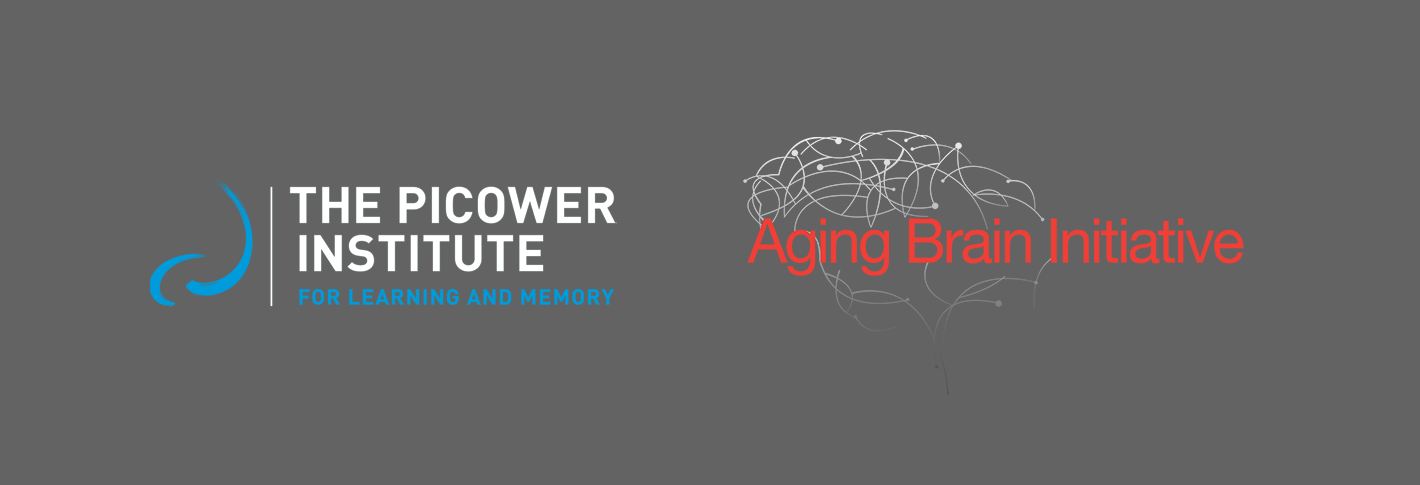
Get involved! See below for ways to participate in ongoing studies at The Picower Institute and The Aging Brain Initiative.
Application of Sensory Stimulation for Gamma Frequency Entrainment
IRB # 1712179268
The Tsai Laboratory is looking for healthy volunteers ages 18-35 to participate in a study looking at how tactile vibrations affect the brain. You will be asked to come to our laboratory for a one-time visit lasting approximately 2 hours. You will complete memory testing for the first part of the visit. For the remaining part of the visit, you will be asked to complete an electroencephalogram (EEG) recording where we will record your brain wave activity. You will be asked to do activities including sitting with your eyes open or closed while touching a vibrating speaker device with your hand. All participants will be compensated for their time.
If interested, please contact Gabrielle de Weck.
Acute Exposure of Individuals with Parkinson’s Disease to Gamma Frequency Stimulation
IRB #2110000486
This study looks at how the brain responds to light, sound, and tactile stimulation in Individuals with Parkinson’s Disease.
Criteria for Participation
- Be between the ages of 45-90
- Diagnosis of Parkinson’s in Hoehn & Yahr stage 2-3
- Have no history of seizures, epilepsy, or stroke
- not on an active treatment with an anti-epileptic agent
- no history of dementia or cognitive impairments, major depression, bipolar disorder, or any other major psychiatric condition
- no history of migraine headaches
This single-session, approximately 4-hour long study involves:
- pre-study mental health evaluations and memory tests- you will fill out a series of questionnaires
- EEG recordings- a cap with electrodes will be placed on your head to record your brain activity
- Exposure to light flicker, click sounds, and/or tactile vibrations delivered at high frequencies – You will be asked to sit in front of an LED panel with speakers and look at the panel while they output light and sounds that are meant to alter your brain activity. You will also be asked to touch and interact with a vibrating speaker device
- Additional cognitive tests following the stimulation
- Financial compensation at $20-30/hr for participation
If interested, please contact Gabrielle de Weck.
Research Study Volunteers Needed
IRB # 1908962521
This study looks at how the brain responds to light and sound stimulation in Individuals with Down syndrome
Criteria for Participation:
- Be between the ages of 25-65.
- Clinical Diagnosis of Down syndrome.
- Have no history of seizures, epilepsy or stroke in the past 24 months.
- Not on active treatment with an anti-epileptic agent.
- Have no history of major depression, bipolar disorder or psychotic disorders, or any other major psychiatric condition.
- Have no history of migraine headaches.
This single-session, approximately 3.5 hour-long study involves:
- Pre-study mental health evaluations – You will be asked to answer a series of questions and fill out a questionnaire.
- EEG recordings – A cap with electrodes will be placed on your head in order to measure your brain activity.
- Exposure to light flicker and/or click sounds delivered at high frequencies – You will be asked to sit in front of an LED panel with speakers and look at the panel while they output light and sounds that are meant to alter your brain activity.
-
Additional cognitive testing following light/sound stimulation session
-
Financial compensation up to $75 at the completion of the study visit
If interested, please contact Gabrielle de Weck by email at gdeweck@mit.edu or call 617-258-7723.
Research study volunteers needed
Location: Houston, Texas.
ClinicalTrials.gov ID NCT05880849
Brief Summary
The purpose of this study is to test the safety, tolerability, and effects of choline in people with increased risk of Alzheimer's Disease (AD), also known as pre-symptomatic AD. Choline is a dietary supplement, but is being investigated to see if it has any effects on the progression to AD.
Detailed Description
The purpose of this study is to determine the safety and tolerability, as well as the biochemical effects of choline bitartrate over a 6-month treatment period in a moderately sized population harboring at least one copy of the APOE4 gene. APOE is a protein involved in lipid transport. Studies show that the APOE4 variant is strongly associated with an increased risk of Alzheimer's Disease. It is unclear how APOE4 results in an increased risk for AD, but a recent study identified a novel molecular pathway, which showed that APOE4-induced dysfunction of lipid metabolism in neurons by cellular accumulation of unsaturated lipids. The investigators hypothesize that choline supplementation normalizes the APOE4-mediated dysregulation by normalizing the Kennedy pathway in neuronal cells, thus stabilizing the lipid metabolism and concomitantly restoring normal cell function by increasing phosphatidylcholine activity via the Kennedy pathway. To evaluate this, the investigators will test if choline supplementation will decrease the ratio of unsaturated lipids to saturated lipids (the fatty acid desaturation index) in cerebrospinal fluid by 15% and increase phosphatidylcholine by 100%.
For more information please visit ClinicalTrials.gov

